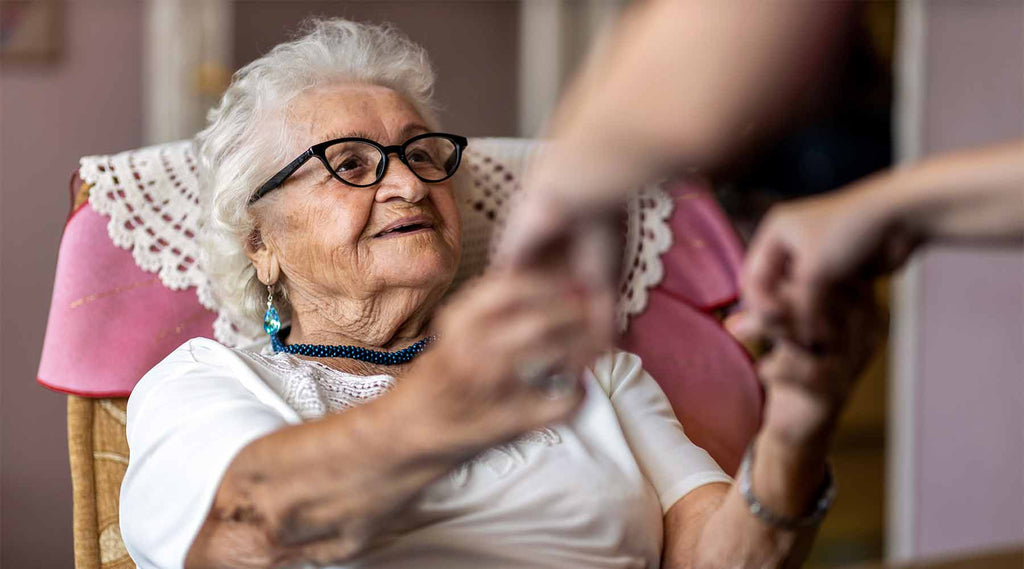
It isn't easy to care for someone with dementia. Whether that person is your spouse, parent, relative or friend, the challenges are there. If you are the primary caregiver, it's that much more difficult. To make it easier for you, and more meaningful for the person, it's important that you understand as much as you can about the disease and what you can do to help. You can't talk to the person in the same way, you can't do the same activities, you can't work and play together the way you used to. But there is a lot that you can do to make their life more fulfilling and can help with dementia care at home.
The person that you're used to being with is still there, but they need your help to show it. They need you to use your knowledge of them to help them to be more like they used to be. They need you to create a supported environment to allow them to be as engaged as possible. They need you to help them find meaningful activities to keep them involved in daily life (in other words, do things for themselves).
Imagine what it must be like for them. They may know where they are, but not really. They may know who you are, but not really. People talk to them but they aren't given the time they need to understand what was said. You have to help them deal with these issues in a way that allows them to find meaning and engagement in day to day life for dementia care in home.
Simple things such as setting the table, dressing themselves or helping wash the dishes can make all the difference. It's frustrating to be sure - you could do the job better and faster, but that's not the point. The point is to allow the person to feel the satisfaction of having done something useful and helpful and having done it on their own.
Helping the person participate in a conversation by knowing how to lead them along in a way that they can follow and encourages them to finish the story can bring a smile to their face, and yours. Doing activities that are designed to be engaging and stimulating can do the same. In fact, research has shown that properly designed activities can actually slow the progress of the disease in some types of dementia.
As frustrating as it is, you do have one big advantage in helping the person - you know them better than anyone. That's a very important part of communicating successfully. You know where they went to school, where they worked and what their hobbies and interests were. You can use this information to guide conversations, you can choose activities that are interesting to them. Using a tool such as our "My Story" book you can help other people do the same.
The articles in the Learning Center can help you learn more about Montessori dementia care and how you can help the person live a fuller and more meaningful life. They will help you choose activities that are appropriate and beneficial, they will guide you on your journey. They will remind you that you are not alone and that help and resources are available. We recommend that you read our articles about the Montessori principles and how applying them can make a difference.




